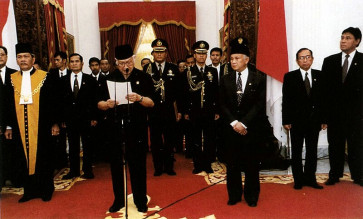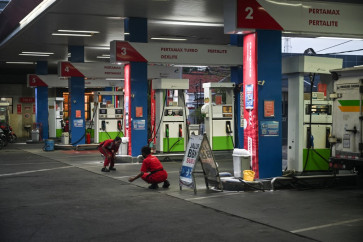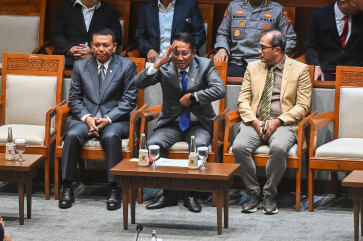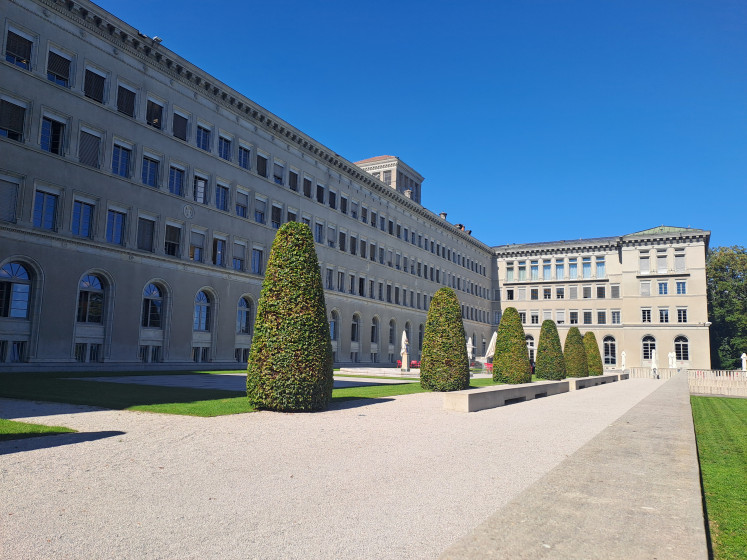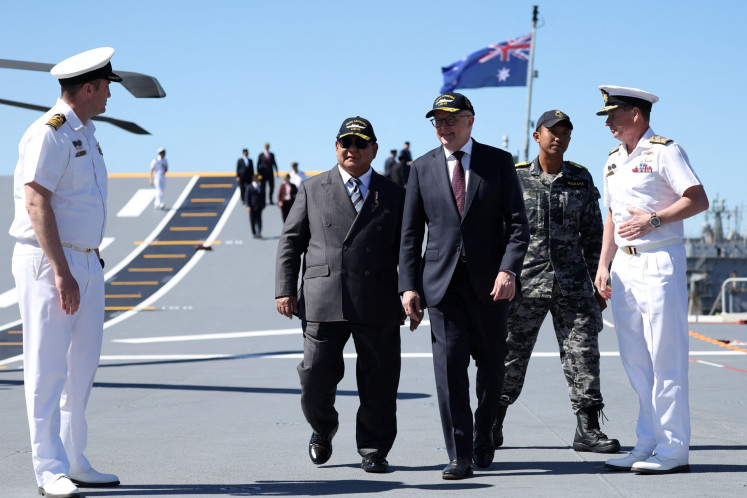Popular Reads
Top Results
Can't find what you're looking for?
View all search resultsPopular Reads
Top Results
Can't find what you're looking for?
View all search results‘Time to harness the Internet for social change’
A prominent human rights campaigner said that the time is right for social and political activists to tap the potential of the Internet to create an online network to wage campaigns on numerous agendas
Change text size
Gift Premium Articles
to Anyone
A
prominent human rights campaigner said that the time is right for social and political activists to tap the potential of the Internet to create an online network to wage campaigns on numerous agendas.
Usman Hamid, former chairman of the Commission for Missing Persons and Victims of Violence (Kontras), said that social networking sites such as Facebook and the popular micro-blogging site Twitter could be very effective in promoting change in the community.
“Take the example of popular movements in Egypt, Libya and Tunisia,” he said on Monday, referring to the three countries which were freed from their oppressive regimes during what is now known as the Arab Spring movement.
Usman said that the use of social media during the Arab Spring significantly contributed to change in the region.
He also said that the Internet could be a “cost-effective” agent of change.
“Now we can voice our opinions digitally and gather wider support. We don’t necessarily have to take to the streets anymore,” Usman said.
He said that the Internet was a more open space for political education compared to traditional media because the interference from the government is rather deficient in what he called “a virtual public sphere”.
Usman cited a number of examples of how the Internet had been successfully used to build a movement, including the online petition to free whistle blower Prita Mulyasari and a massive online campaign to challenge the prosecution of former Corruption Eradication Commission members Bibit Samad Rianto and Chandra Hamzah, who were accused of accepting bribes.
Usman also said that activists could start the online movement today rather than waiting for the election season to arrive in 2014 or 2019.
A study by Frost and Sullivan predicts that the number of Internet users in Indonesia will rocket from 40 million in 2011 to 175 million by 2016.
As of November last year, Indonesia had 40.8 million Facebook accounts, second only to the United States with 155.98 million users.
After Indonesia, most Facebook users are in India (38 million), the United Kingdom (30.48), Turkey (30.47 million), Brazil (30.4 million), Mexico (30.1 million) the Philippines (26.7 million) France (23.2 million) and Germany (21.6 million).
Additionally, Indonesia has 6.2 million Twitter accounts, or 2.6 percent of the total population, third only after Japan with 16.1 million users and India with 6.4 million.
Social activist Salamuddin Daeng of the Institute for Global Justice (IGJ) contradicted Usman’s statement, saying that social media was only suited for trivial purposes.
Salamuddin said that social networks were suitable to discuss “light topics”, and that there was barely a connection between political movements and advances in technology.
“I think social media is only effective to disseminate simple information, but you cannot really use it to educate people about politics and social issues. How can you give an in-depth explanation about poverty that plagues hundreds of millions of Indonesians via Twitter? You have to do this in person,” he said.
Salamuddin said that it was actual movement in the real world that brought about change and the online movement could only be effective if a real network had been set up.
University of Indonesia media analyst Roby Muhamad said that there is no ready-made formula to determine the success of the news media in generating change.
“What’s more important is the people. Do they really understand the technology? The main purpose of social networking is to spread information,” he said.
He added that social media today is simply made of tools that are very similar to other means that activists had been using for decades. (tas)


